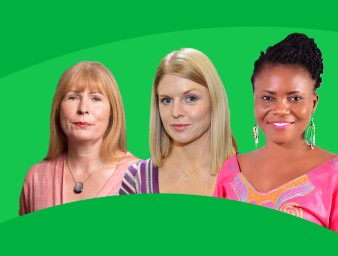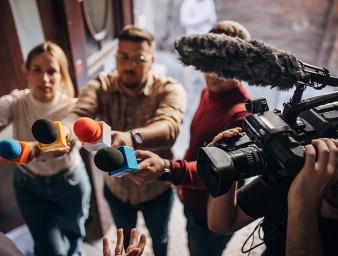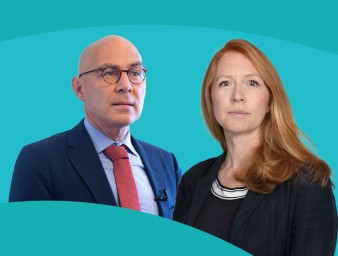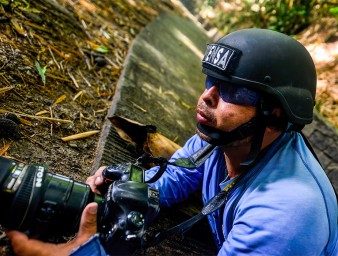"Journalism may be our only hope to secure human rights."
03 May 2023
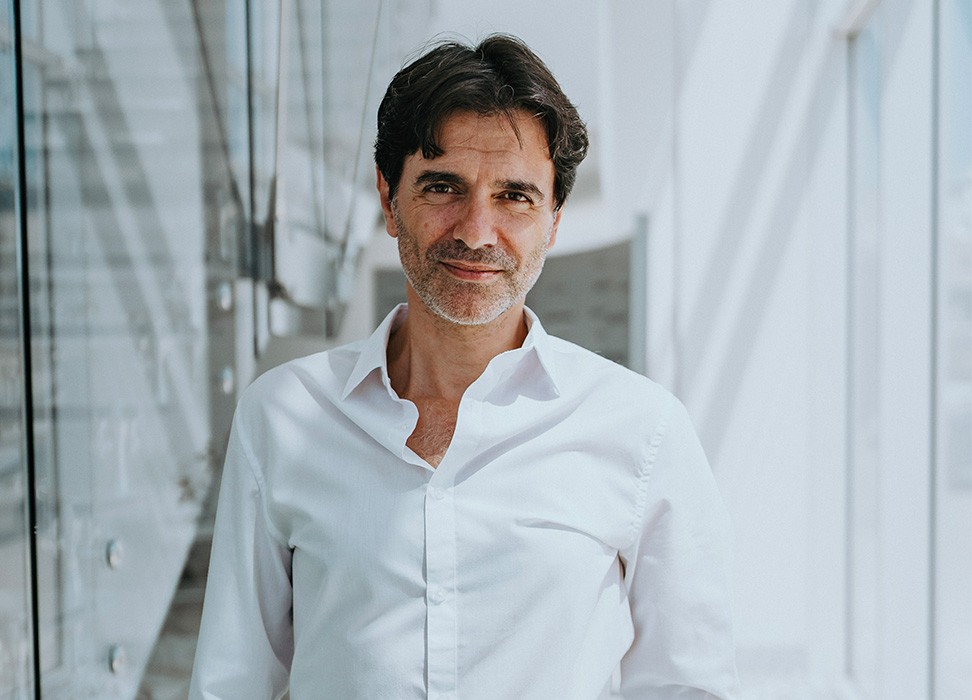
In 2017, Maltese journalist Daphne Caruana Galizia, 53, mother-of-three, was brutally murdered by a car bomb that was placed under her seat as she drove away from her home.
Many journalists like Caruana Galizia are killed every year because of their work. According to UNESCO, 87 journalists were killed in 2022 compared to 55 in 2021.
Before her death, Caruana Galizia spent 30 years as a well-known columnist, blogger and journalist in Malta, investigating government corruption in her blog, Running Commentary. According to her family, powerful people in Malta subjected her to repeated threats and violence. Her house was attacked twice, and her family dogs killed. Caruana Galizia’s biggest critics intimidated her with 47 open libel suits and her assets were frozen.
Libel and lawsuits, including Strategic Lawsuits Against Public Participation (SLAPPs) are frequently used to harass and intimidate journalists, according to UN Human Rights Chief Volker Türk.
“The Universal Declaration of Human Rights is our guardrail,” said Türk. "As we celebrate its 75th anniversary this year, my Office will devote the month of May to celebrating critical voices and debate, to ensuring the safety of journalists and to protecting the civic space.”
According to Herman Grech, Editor-in-chief of the Times of Malta, an English language daily newspaper in Malta where Caruana Galizia once was a columnist, she was the most popular as well as the most resented blogger in Malta and her work on the Panama Papers was so powerful that it helped trigger an early election in 2017. The Panama Papers were 11.5 million leaked documents of data published in 2016, which detailed financial information for offshore entities. After her murder, Grech was among a small group of journalists who went on to investigate the case and fight for justice.
“They shut up Daphne simply because she was getting too close to the truth,” he said. “It’s just not the fact that she was murdered, but there was a concerted attempt to cover up for the perpetrators. And the people responsible for this went straight to the top of the government.”
In 2020, he also decided to take her story to an artistic platform and write a play, “They Blew Her Up,” inspired by the interviews he compiled with those involved in the story and investigation. After several showings throughout Europe, the play is scheduled to be performed in Vienna to mark World Press Freedom Day on 3 May in collaboration with the European Union. On World Press Freedom Day, Grech shared with UN Human Rights more of his thoughts on the investigation, the ongoing fight for justice, and the importance of protecting freedom of expression.
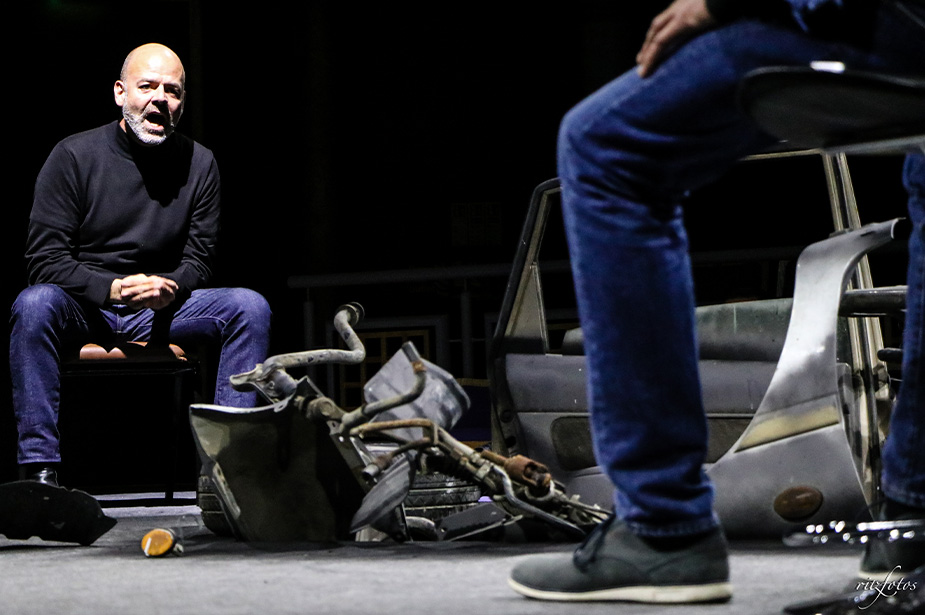
Actor Alan Paris in a scene from “They Blew Her Up”. Photo credit: © Francesca Rizzo
Why did you feel her story was so important to take to the stage?
I've been a journalist for 26 years, including four years as Editor in Chief of the Times of Malta, as well as a stint in TV. In the last 15 years, I have also started doing theater which relates directly to my line of work. The play was inspired by the shocking story of Daphne, who was killed for doing her job, and serves as a call to protect journalism now more than ever. It was also a means to fight back against the dangerous power play of politics and money trampling on human rights. The play is not about glorifying an assassinated journalist, but about the importance of journalism and media freedom, especially in the face of increasing obstacles. It provides a platform to speak about issues like freedom of expression, information, and protection of journalism. I find the arts can be impactful in expressing these ideas, and the play gave me an avenue to recount one of the most disturbing stories of my generation beyond the news headlines.
What was the audience’s response?
I must admit, I wasn’t too sure this play was going to work when I set about to write it. Also, I thought since it is based in Malta, I felt many wouldn’t care about tiny Malta. I was wrong. The play has since been performed in other countries in Europe, and the one thing I’m seeing is that the issues of freedom of expression and the threat to journalism resonates everywhere.
Was justice served in Caruana Galizia’s murder?
Justice has only been partially served. The trigger men have been convicted but the person who has allegedly ordered Daphne’s assassination is still awaiting trial, which is probably happening later this year. The suspect is one of the richest men in Malta with plenty of connections. So, we’re dealing with a very delicate story. I would only say justice is served once we see some more people behind bars, including those who tried to cover it all up.
What has her murder taught you about journalism?
It taught me that journalism has a crucial role to play when the institutions fail, either because of incompetence or by design. Still, in all my career, I’ve never found it so difficult to operate in this business. We are relentlessly attacked and trolled in an environment where the government refuses to acknowledge the media as the fourth pillar of democracy. Sadly, some of the best journalists I know are no longer working in the industry. Since Daphne was killed, people are scared to get into the media here. And all this is happening in a race against time where politicians and social media are introducing a dangerous discourse. We need to call out the lies and speak the truth.
What can we do to improve the situation?
We need to change our narrative because freedom of expression and even the quest for basic truth is being threatened. As journalists, we must focus on fact checking, debunking myths, and fight leaders with just the truth. The world has changed to such an extent that investigative journalists now need to be a bit more blunt and speak out about what is right and wrong. Use whatever means you have to speak truth to power.
What do you see as a threat?
The threat is big money, politicians and corporations manipulating the truth. There is a big problem with media literacy. Many people still don’t know the difference between something which has just been posted on Facebook by an unverified sourced as opposed to reports or investigations by long-established media organizations that have been fact-checked and double sourced stories. All our rights are at risk if we can’t be free to analyze and question our governments and hold them accountable. Journalism may be our only hope to secure human rights.
* This story is part of an occasional series of stories of individuals or organizations that stand up for human rights. The views expressed in these stories do not necessarily reflect the position and opinions of UN Human Rights.
